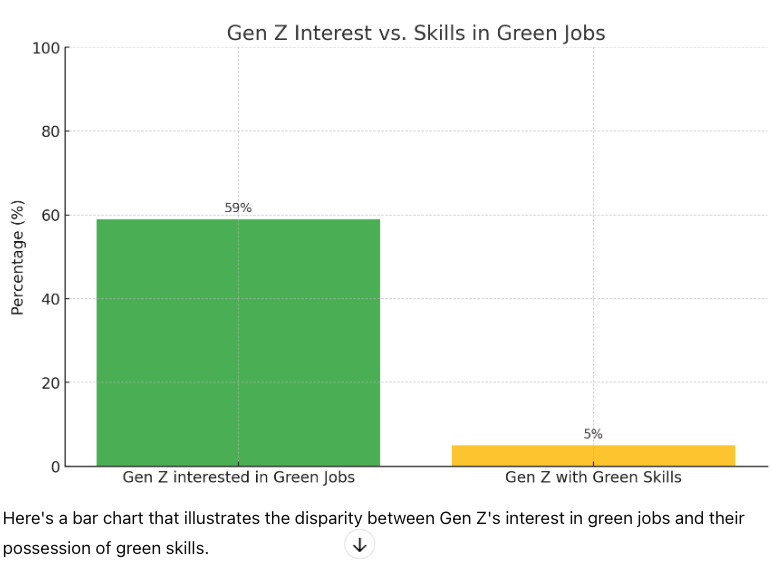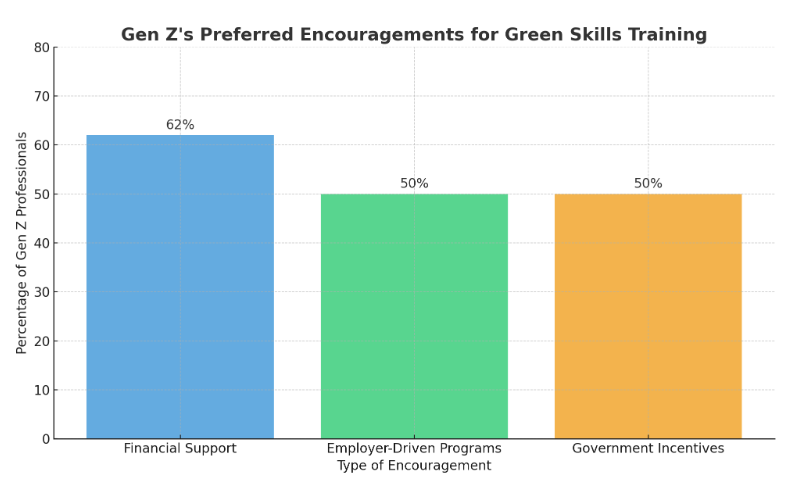Image credit: Getty Images
A new LinkedIn report reveals a mix of optimism and challenges as Generation Z (Gen Z) navigates the job market with a strong focus on climate impact. The report highlights that climate change is a significant concern for this generation, with 72 per cent of UAE’s Gen Z expressing worries about its impact.
The good news is Gen Z, defined as those born from 1997 onward, are overwhelmingly eager to join companies that are actively tackling climate change.
This generation is not just paying lip service to sustainability; they are willing to walk away from job offers if the company’s green policies don’t align with their values. The report highlights that 61 per cent of Gen Z professionals would consider rejecting a job if the employer’s environmental policies are inadequate.
Skills gap in green jobs
However, the bad news is despite their enthusiasm, there’s a significant skills gap.
LinkedIn’s survey found that only 1 in 20 Gen Z workers possess the “green skills” necessary to combat the climate crisis. This shortage of skills poses a barrier to their aspirations of contributing to environmental solutions through their careers.

Additionally, the report also sheds light on a troubling lack of awareness about green career paths among Gen Z. Only 30 per cent of UAE’s Gen Z professionals are familiar with the available green roles, and 63 per cent perceive a scarcity of green job opportunities.
Furthermore, just 16 per cent feel they have access to adequate training to acquire the skills needed for these roles.
Climate-focused
The desire to work in eco-friendly roles remains strong among Gen Z.
According to the study, 59 per cent are interested in pursuing green jobs within the next five years. Their motivation stems from a combination of environmental concern (57 per cent), the belief in ample opportunities in green sectors (51 per cent), and the potential for better financial rewards (49 per cent).
However, Gen Z lags behind older cohorts like millennials, who dominate the green-skilled workforce at 65 per cent. Only 15 per cent of those with green skills in the UAE are from Gen Z, indicating a need for targeted educational and training programs to bridge this gap.
Over half report experiencing “eco-anxiety,” a term describing the distress caused by environmental concerns. This anxiety is driving personal lifestyle changes, with 59 per cent of respondents making efforts to reduce their carbon footprint and 61 per cent considering environmental impacts in their daily decisions.
Addressing the skills gap
LinkedIn’s data places the UAE second in the MENA region for the concentration of green talent across generations.
The UAE is supportive of youth-led climate action, as seen in initiatives like the International Youth Climate Delegates Program at COP28. However, making green jobs more accessible requires collaboration between businesses, policymakers, and educational institutions to equip young professionals with the necessary skills.

Ali Matar, LinkedIn’s EMEA Growth Markets Leader, underscores the importance of this transition. He notes that as Gen Z is poised to become a significant part of the global workforce, their demand for green policies and roles must be met with adequate training and support from the labour market.
To address the skill gap, businesses are encouraged to adopt a skills-based approach in their hiring and training strategies.
This includes focusing on digital and STEM skills, which are crucial for green roles. Policymakers are also urged to facilitate partnerships and funding to support green job training across all generations.
As the world increasingly prioritises sustainability, the urgency to align job markets with green skills and opportunities grows. Gen Z’s commitment to climate action, paired with the right support and training, can drive significant progress towards a greener future.
Read: How to attract and retain talent in 2024, according to a LinkedIn executive

